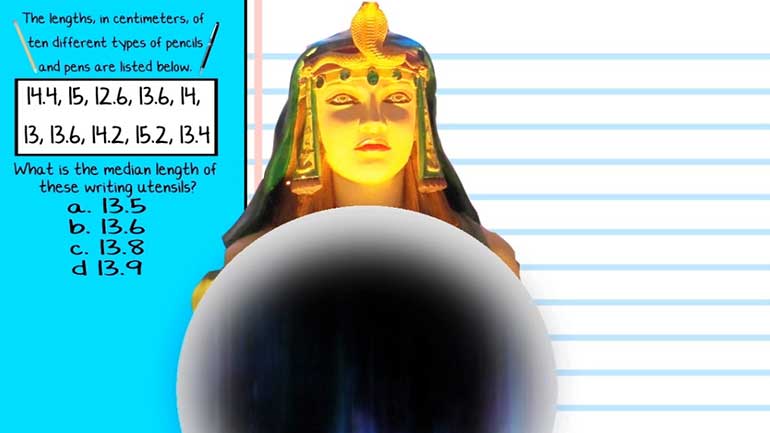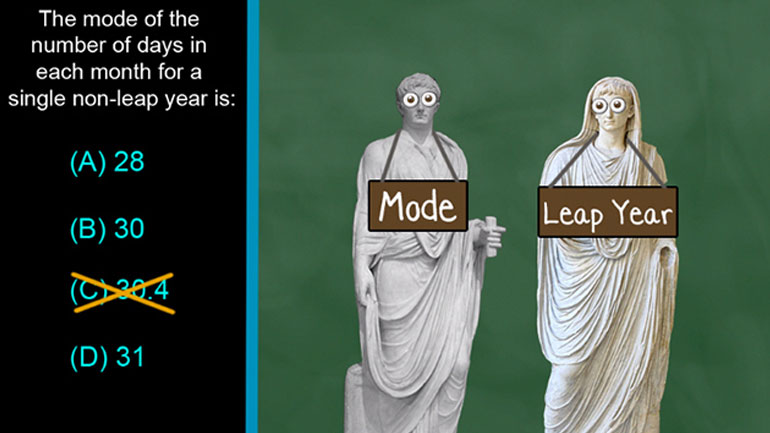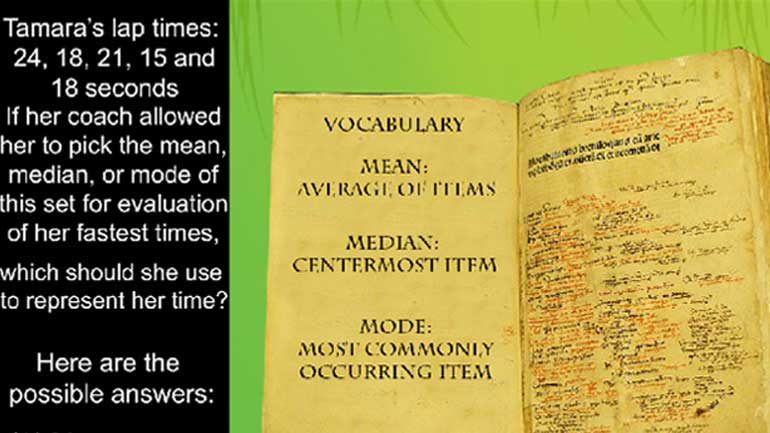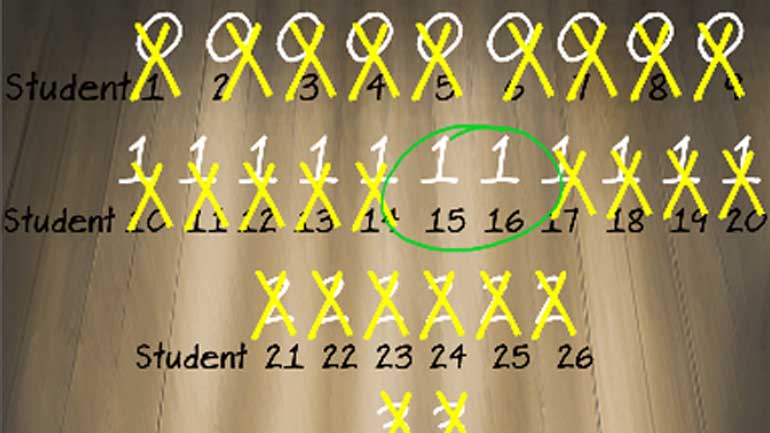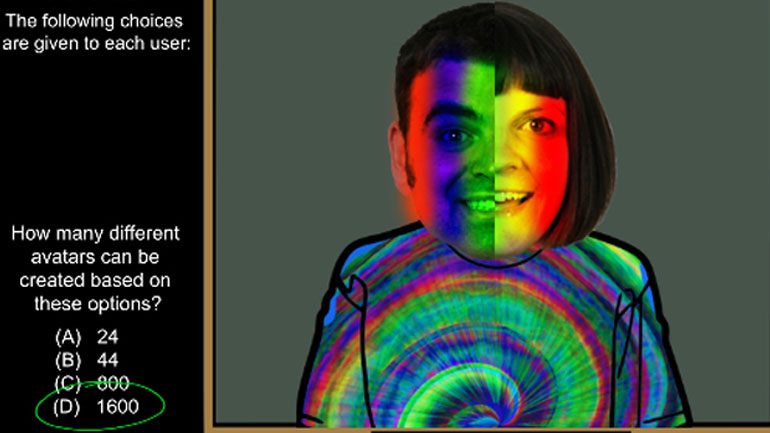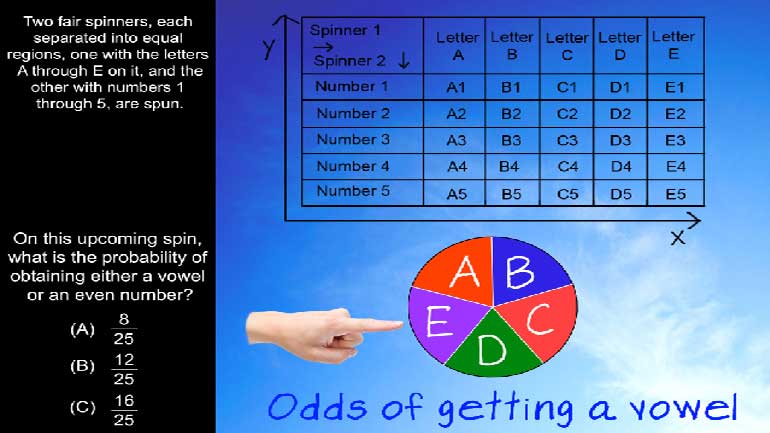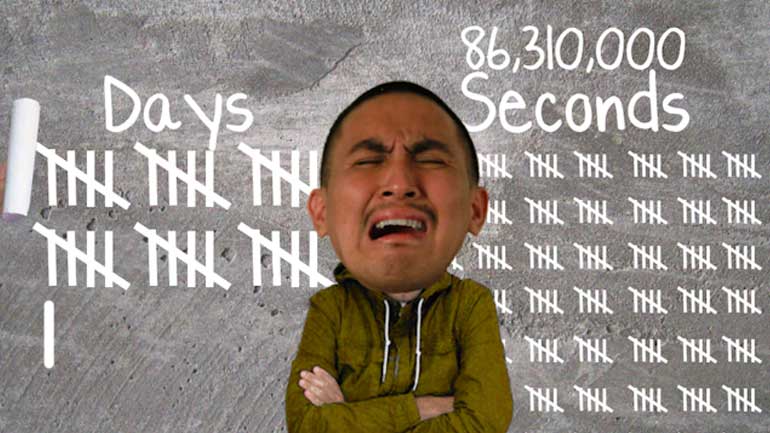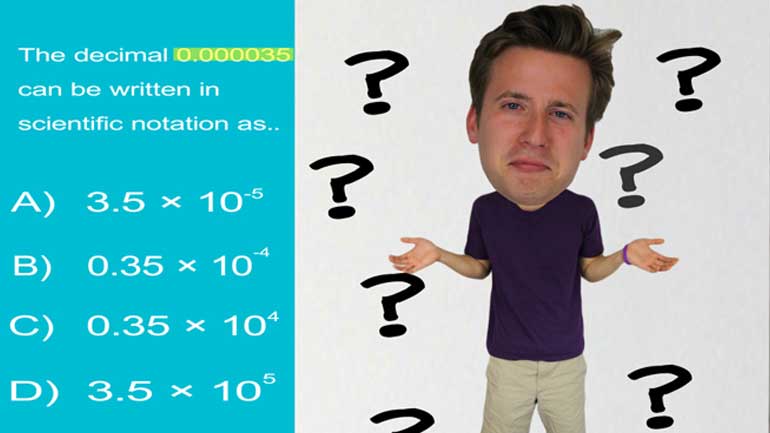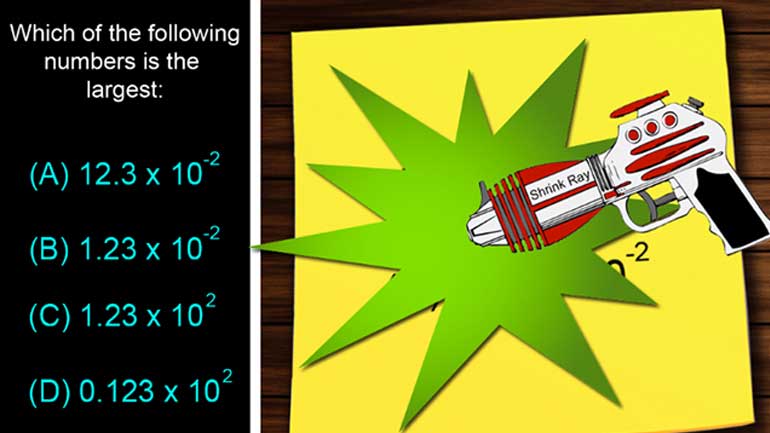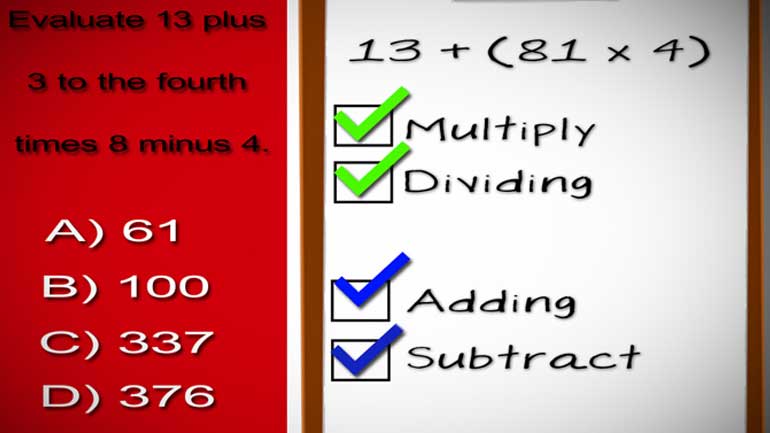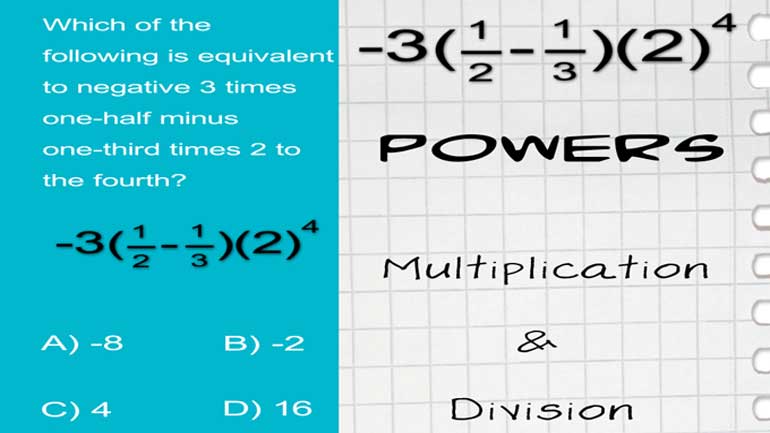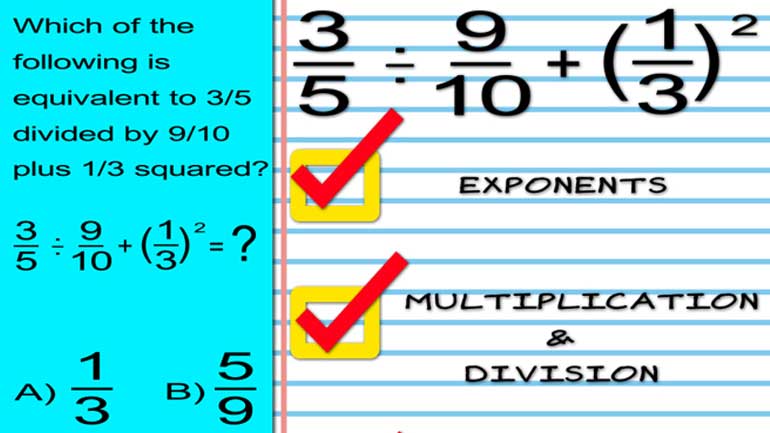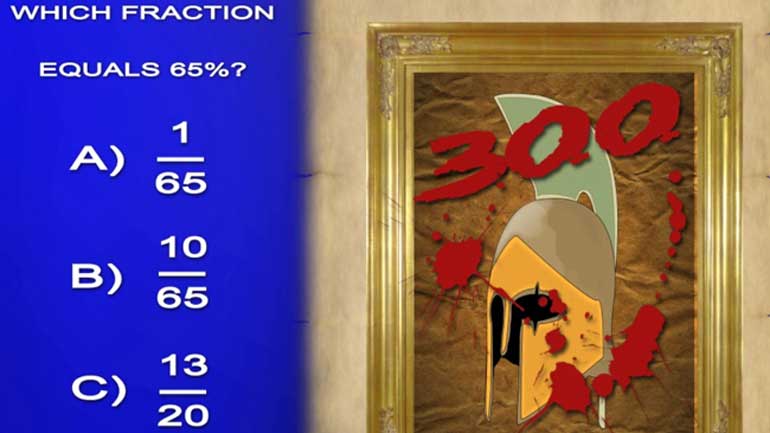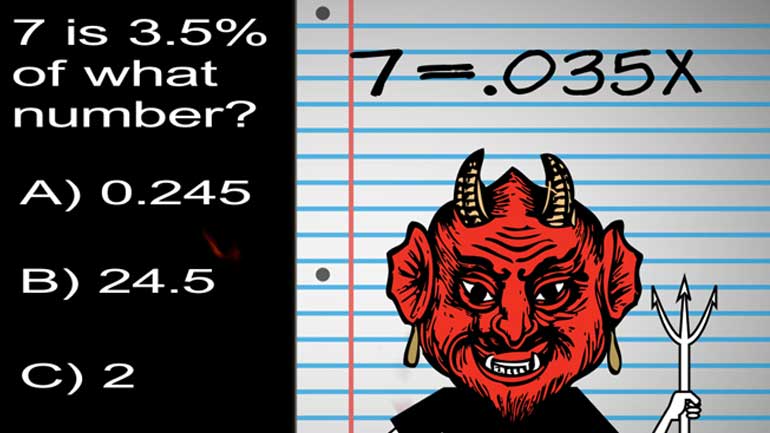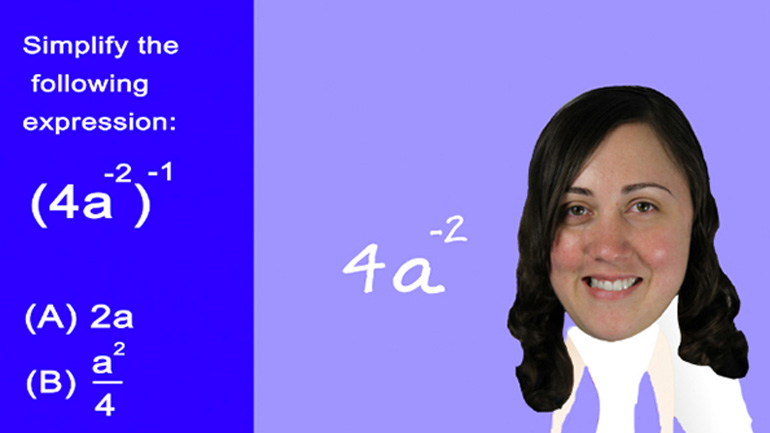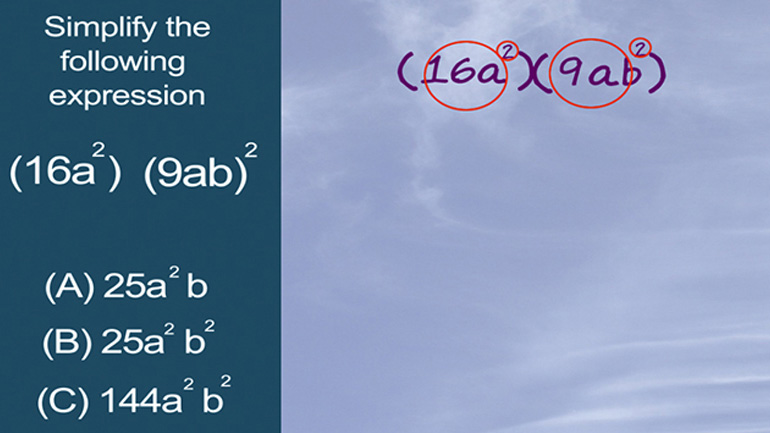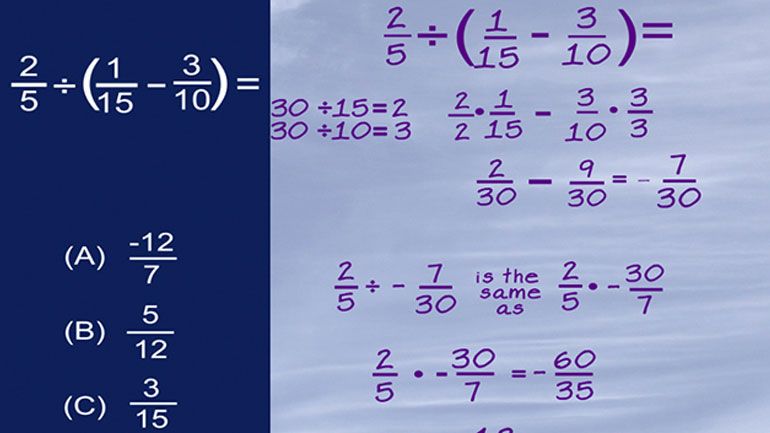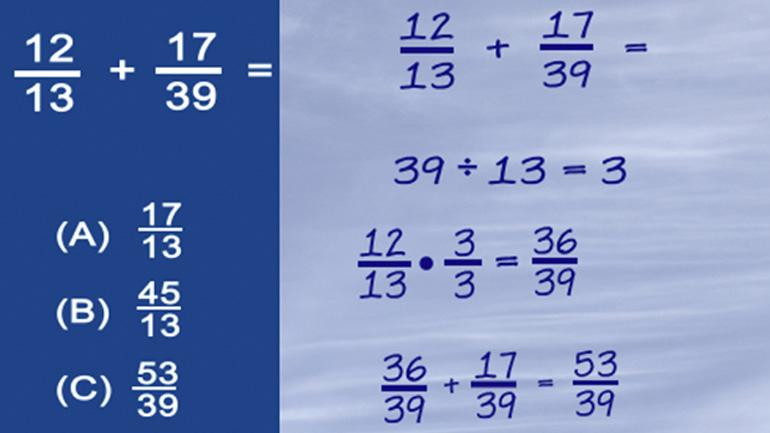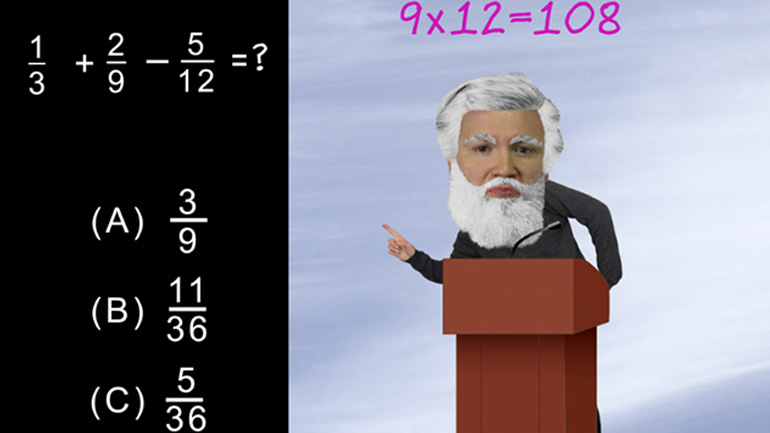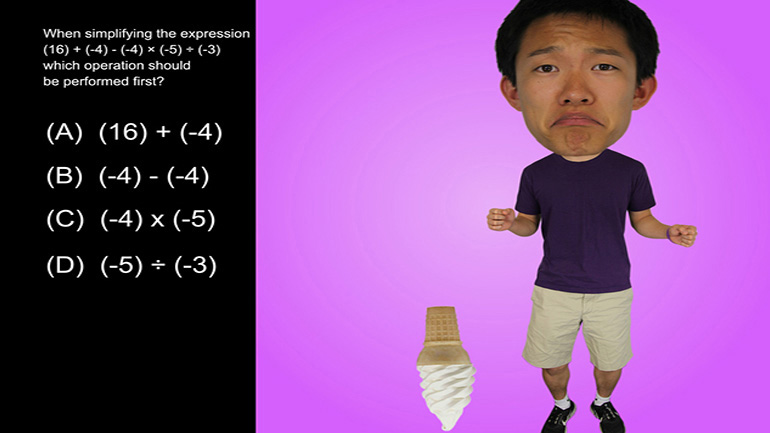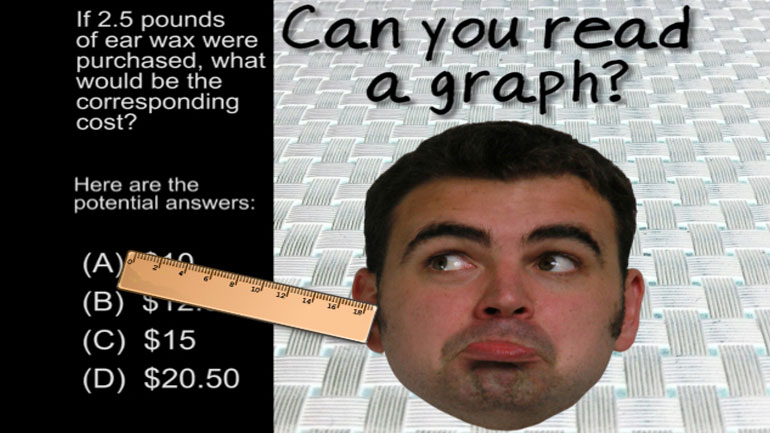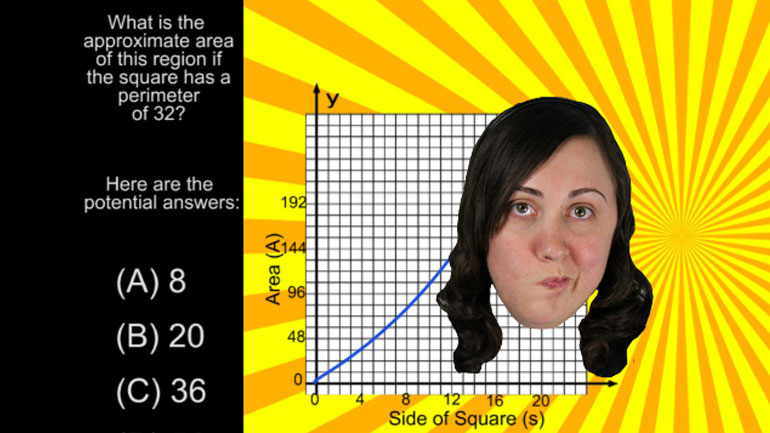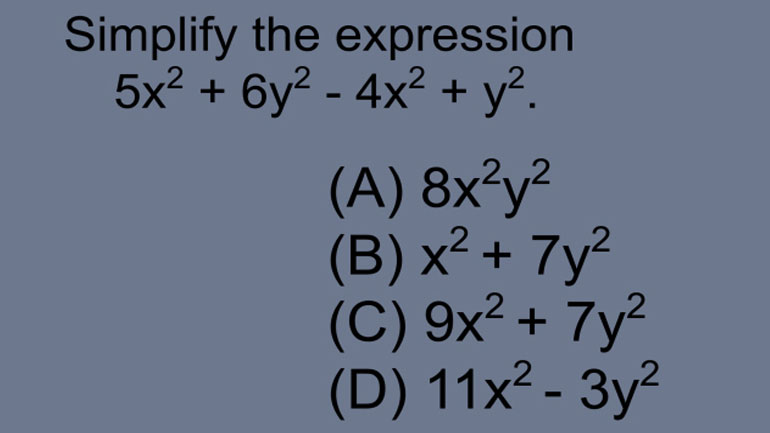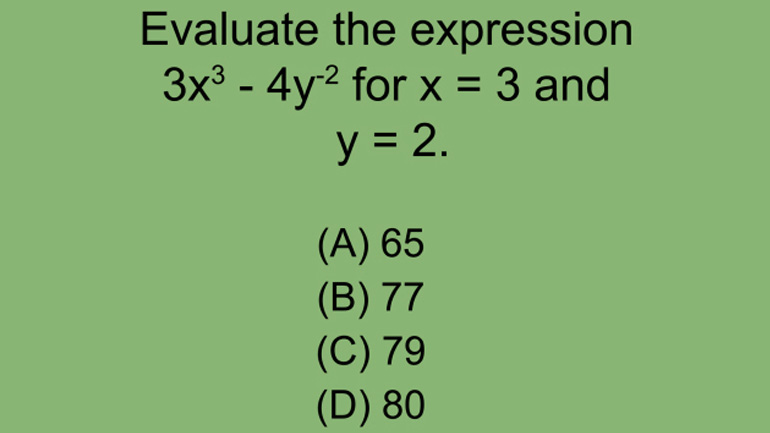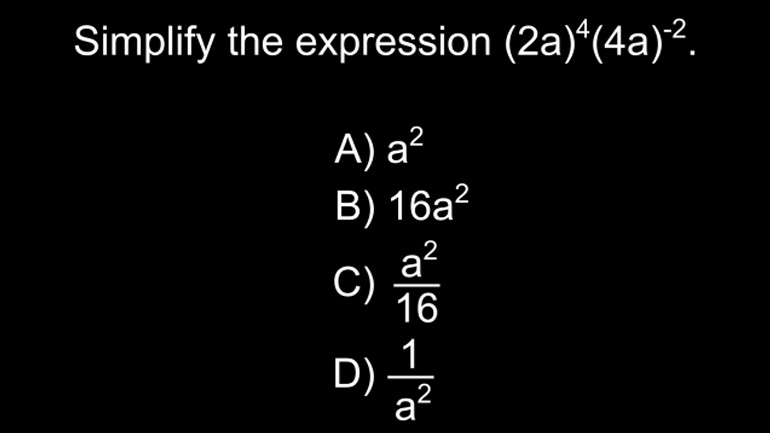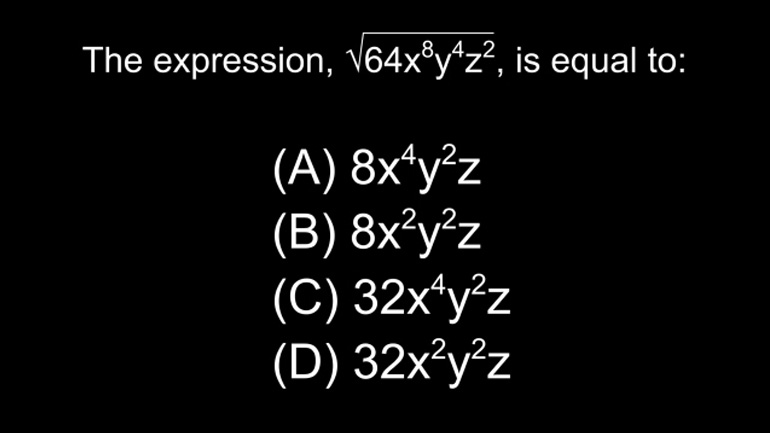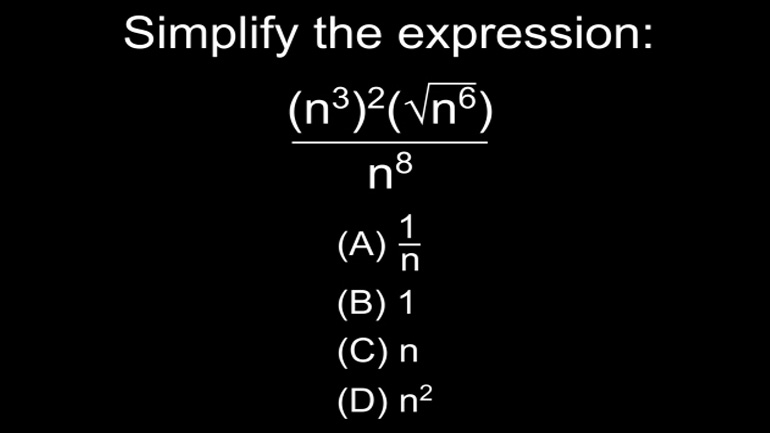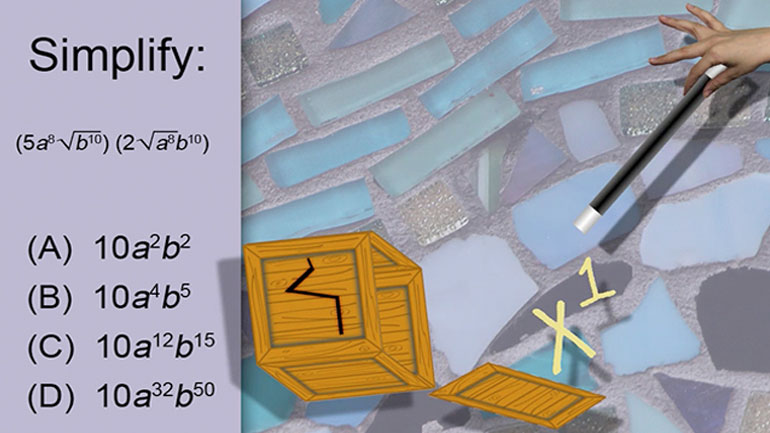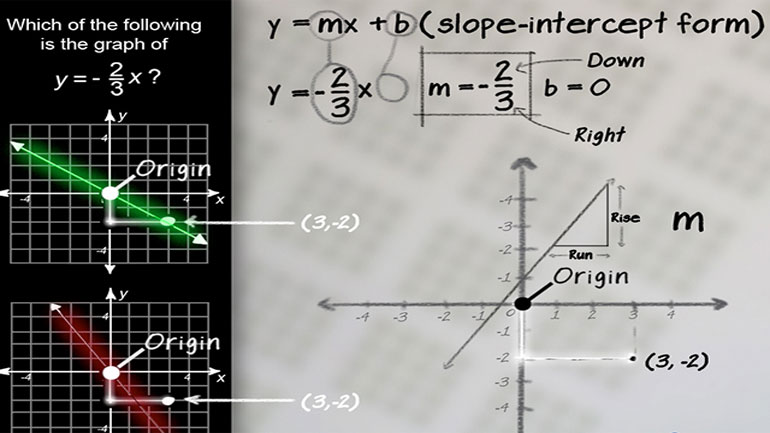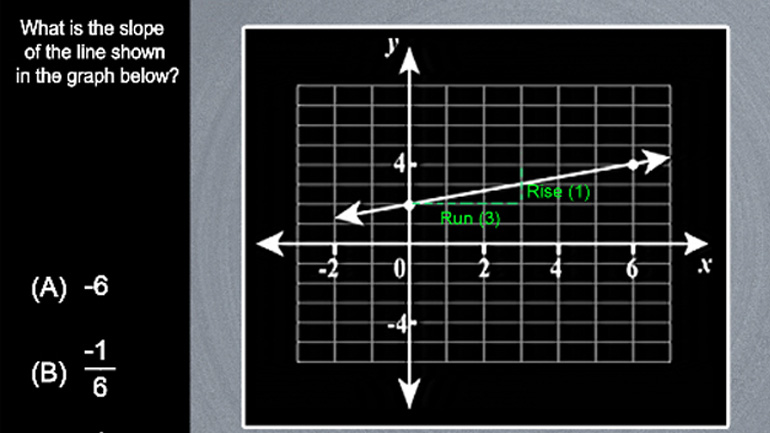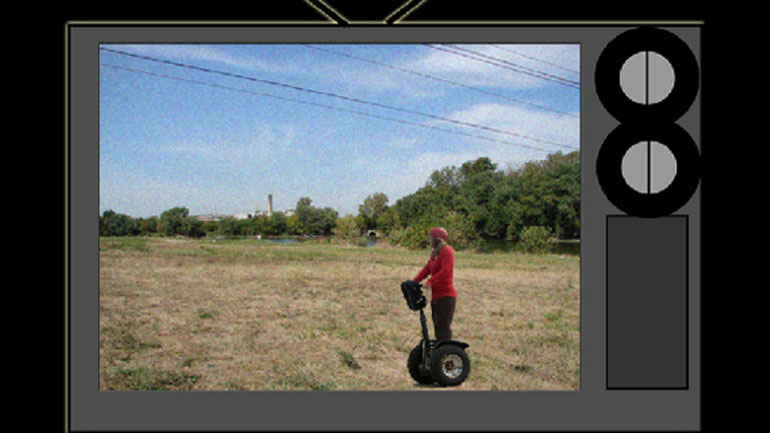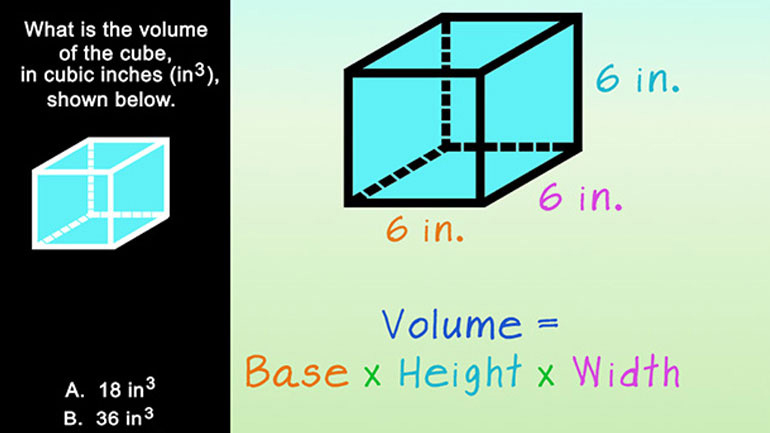ShmoopTube
Where Monty Python meets your 10th grade teacher.
Search Thousands of Shmoop Videos
CAHSEE Math Videos 210 videos
Statistics, Data, and Probability I: Drill Set 1, Problem 1. What is the mean yearly salary?
Statistics, Data, and Probability I: Drill Set 1, Problem 2. What is the median length of these writing utensils?
CAHSEE Math Statistics, Data, and Probability I: Drill Set 1, Problem 3. The mode of the number of days in each month for a single non-leap year is...
CAHSEE Math 1.2 Measurement and Geometry 191 Views
Share It!
Description:
CAHSEE Math Measurement and Geometry: Drill Set 1, Problem 2. Convert the value to meters per second.
CAHSEE Math Measurement and Geometry: Drill Set 1, Problem 2. Convert the value to meters per second.
Transcript
- 00:02
Here's an unshmoopy question you'll find on an exam somewhere in life...
- 00:08
Seventy-two kilometers per hour (km/h) is how many meters per second (m/s)?
- 00:12
Here are the potential answers...
- 00:17
This question is asking us to convert --
- 00:21
and to get the units right.
Full Transcript
- 00:23
We have 72 KILOMETERS per HOUR which we want
- 00:27
to convert to METERS per SECOND.
- 00:30
Let's start by getting half way there and make it meters per hour.
- 00:34
Okay, so "KILO" means a thousand.
- 00:38
So 72 kilometers per hour is 72 thousand meters per hour.
- 00:43
Now to get hours converted into seconds.
- 00:46
Well, an hour has 60 minutes, which has 60 seconds...
- 00:49
so 60 times 60 gets you 3,600 seconds in an hour.
- 00:54
Go ahead and count 'em if you want to double-check. It's your hour.
- 00:58
The new equation then should be 72,000 over 3,600, and that's meters per second.
- 01:05
All we have to do now is reduce the number and we're there.
- 01:08
Cross out the 2 zeros here and here... and we have 720 over 36.
- 01:13
36 goes into 72 twice... and we have 20...
- 01:17
and our answer is B -- 20 meters per second.
Related Videos
CAHSEE Math: Algebra and Functions Drill 5, Problem 3. Solve the equation.
The video will show you how to plot points in 3D using the axes of the 3D coordinate system. Make sure you're wearing your special glasses for this...
When graphing inequalities, you graph the line, shade the corresponding side, and plug in the point. The end!
One formula to rule them all, one formula to find them. One formula to bring them all, and in the darkness bind them. Or something like that. I...

